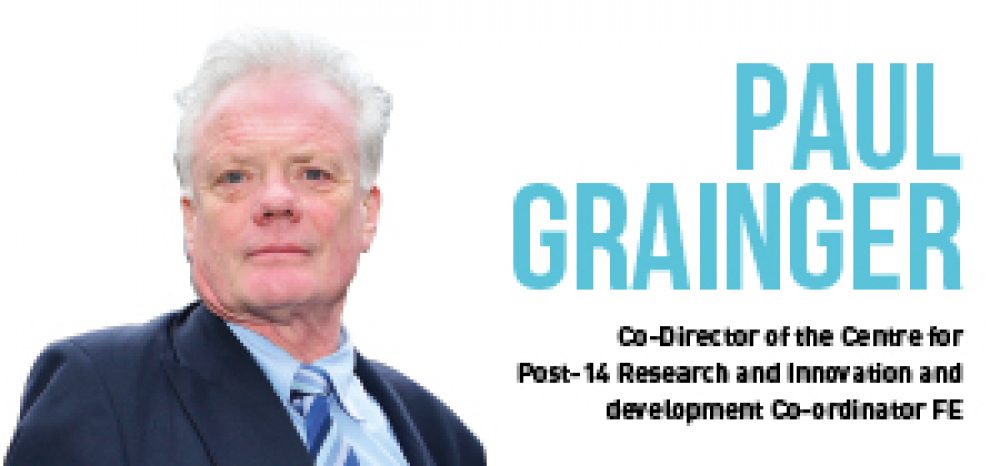Paul Grainger outlines the new University College London (UCL)/Institute of Education (IOE) Centre for Post-14 Education and Work, which was set up last month.
Each year I tell my students that this year has been a turbulent one for FE. And each year it’s true. Stability is never on the agenda. It’s the price that FE pays for being dynamic, responsive, and crucial to both economic prosperity and social mobility.
Globally there is increased interest in transitions from school to work, training and higher education. There are different patterns across the world, even across the nations of the UK. FE in Britain has unique features and strengths, and these continue in a state of flux as leaders respond to changes in technology, learning and the nature of work; policy pressure to downsize the state; and regional pressures for increased productivity and civic integration.ach year I tell my students that this year has been a turbulent one for FE. And each year it’s true. Stability is never on the agenda. It’s the price that FE pays for being dynamic, responsive, and crucial to both economic prosperity and social mobility.
It is vital that there is a strong academic centre dedicated to further and continuing education. For those of us of advanced years Coombe Lodge used to provide such a focus, with a rich stream of scholarship to inform policy decisions. Fortunately its library was saved in the nick of time, as reported by FE Week in May, and now resides at the University College London/Institute of Education.
Institutional and system leadership, governance, and professional identities, central to the future of FE, are evolving rapidly and should be aided by a strong narrative of support
The overarching aim of this new centre, building on the legacies of the Centre for Post-14 Research and Innovation and the National Research and Development Centre for Adult Literacy and Numeracy (NRDC), is to support improvement and stimulate debate around the relationship between education, working life and active citizenship.
Our research and consultancy is supported by a dialogue between practitioners, policy and research communities, and through collaboration with government agencies, local organisations, higher education and employers.
Over the next five to 10 years there will be a major international, national and regional policy focus on research concerning the
relationship between learning and work, including the development of literacy, language and numeracy across diverse communities.
There are fascinating and important topics to explore including relationships between employers and the education system, issues of educational participation, progression and life transitions for an inclusive and aspirational society. Disengagement continues to concern us; the high cost of frustrated lives, welfare and incarceration. It is vital that policy making is informed, and implementation and impact measured in an informed way.
Institutional and system leadership, governance, and professional identities, central to the future of FE, are evolving rapidly and should be aided by a strong narrative of support. Local learning systems are increasingly the focus of attention, and may prove the basis for pivotal College activity as state intervention reduces.
The team at UCL/IOE are developing ideas and models around local learning ecologies and systems. Professional, vocational, community and work-based learning are fundamental to local prosperity, and a better understanding on how they relate to employment and productivity levels something we are grappling with.
Are curriculum, qualifications and assessment to remain a national, statutory requirements, subject to the whim of volatile ministerial reflexes, or could they become devolved, local in nature and partnership driven?
The Centre will explore these ideas by keeping in touch with the sector and those within it. Any bone fide practitioner can join our network — http://tinyurl.com/poskw62 — and contribute their perspective.
Turbulence and uncertaintly may have been the norm for many years, but the present level of threat is high and potentially fatal. When aspirations for a literate, numerate, inclusive society and an efficient economy are banking on a strong FE sector, that very sector is at the sharp end of austerity.
Colleges serving our economy and the future of our learners need informed and influential friends. The new Centre is our contribution to both a sustainable scholarship and a durable sector.








Your thoughts